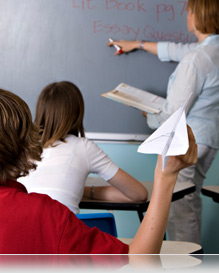Boys and Auditory Processing

The APAK has an even greater effect on the attentiveness, behavior and learning outcomes for boys.
Over the last 3 decades, the evidence indicating that boys, on average, are achieving at lower levels than girls in literacy throughout their primary and secondary schooling is not in dispute. Indeed, the gap is widening and is universal in the majority of countries throughout the world.
The evidence also indicates that boys, on average, are significantly more disengaged with schooling and are more likely to be ‘at risk’ of academic under-achievement – especially in literacy during the early & middle years of schooling.
The post-modern ‘information age’ demands sophisticated literacy competence (verbal processing and written communication skills). The widening gap between the literacy achievements of boys and girls (in favour of girls) is also reflected in the curriculum and its assessment.
Boys exhibit significantly greater externalizing behavior problems in the classroom (antisocial, inattention, and restlessness) – particularly inattentiveness.

What the APAK means for boys
Since under-achievement in literacy overlaps with externalizing behavior problems, especially among boys, it is vital that interventions are implemented as early as possible!
- If teachers are aware of the auditory processing capacity of their students (understanding how children listen and learn) and implement intervention strategies to ensure understanding, this has a strong positive effect on attentiveness in the classroom – especially for boys.
- Without such awareness and intervention, boys’ attentiveness declines and the problems become compounded.
“My English teacher wants me to write about my feelings, my History teacher wants me to give my opinions, and my Science teacher wants me write on my views about the environment! I don’t know what my feelings, opinions and views are – and I can’t write about them. Anyway, they’re none of their bloody business! I hate school!! I only wish I could write about the things I’m interested in like sport and military aircraft.”
“In the early years of schooling, boys constitute 75-85% of those children (usually in Grade 1) identified ‘at-risk’ of poor achievement progress in literacy, and selected for participation in a Reading Recovery intervention program.”
“Boys have a higher prevalence of auditory processing problems – many of whom are ‘gulping for air’ in a sea of teacher-generated ‘blah’. This ‘blah’ impacts negatively on their literacy and general achievement progress, and on their behaviors. ”
